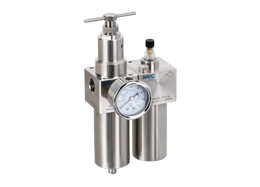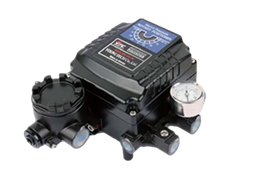-
-
News
Unlocking the Power of Valves: A Deep Dive into Their Functionality
2025-08-01
Author:
Understanding Valves: The Unsung Heroes of Fluid Control
Ever wondered how fluid flows seamlessly in pipelines or how pressure is maintained in various systems? Enter the valve! These nifty little components play a pivotal role in regulating and controlling the flow of liquids and gases in countless applications. Let’s get our hands dirty and dive into the fascinating world of valves!
What Exactly is a Valve?
Simply put, a valve is a device that controls the passage of fluids through a system or process. Think of it as a gatekeeper, deciding when and how much fluid can flow through. They come in all shapes and sizes, catering to different needs and specifications. From your kitchen sink to massive industrial plants, valves are everywhere!
Types of Valves: A Quick Rundown
With so many types out there, it can be a bit overwhelming. But don’t sweat it! Here’s a quick cheat sheet for you:
- Ball Valves: These are super reliable for on/off control. They use a spherical disc to stop or allow flow.
- Gate Valves: Perfect for situations where a straight-line flow is needed. They’re great for isolation but not for throttling.
- Globe Valves: If you need precise flow control, look no further! They’re excellent for throttling.
- Check Valves: These bad boys ensure that fluid flows in one direction only, preventing backflow.
- Butterfly Valves: They’re compact and lightweight, making them perfect for large volumes of flow.
Why are Valves Important?
Alright, here’s the deal: valves are crucial in almost every industry. Whether it’s oil and gas, water treatment, or even in your car’s engine, they help maintain safety and efficiency. Without valves, our modern infrastructure would be a hot mess!
1. Safety First!
Imagine a pipeline bursting due to excessive pressure. Yikes, right? Valves help regulate pressure, preventing catastrophic failures. They act as a safety net, ensuring systems operate within safe limits.
2. Efficiency is Key
In industries like manufacturing, efficiency is the name of the game. Valves help optimize processes by controlling flow rates and minimizing waste. It’s all about getting the most out of every drop!
3. Versatility Galore!
Valves are incredibly versatile. They can handle a range of fluids, including water, oil, and even corrosive chemicals. This adaptability makes them indispensable in various applications.
How to Choose the Right Valve
Choosing the right valve can feel like finding a needle in a haystack. But fear not! Here are some tips to guide you:
- Know Your Fluid: Different liquids and gases have different properties. Understand what you’re working with!
- Consider Pressure and Temperature: Make sure the valve can handle the specific conditions of your system.
- Flow Rate Requirements: Determine how much fluid needs to pass through and choose a valve that can accommodate that.
Common Applications of Valves
Valves are used in a myriad of applications. Here are a few notable ones:
- Water Supply Systems: Valves control the flow of water in municipal systems.
- Oil and Gas Pipelines: Critical for safety and pressure management in transporting hydrocarbons.
- HVAC Systems: Help regulate temperature and airflow in buildings.
Conclusion: Valves Make the World Go Round!
In a world that thrives on fluid movement, valves are the true MVPs. They control, regulate, and ensure safety in our everyday lives—from the water we drink to the gas that powers our cars. So, the next time you turn on a faucet or drive your vehicle, give a little nod to the humble valve—the unsung hero of fluid mechanics!
RELATED INFORMATION
undefined

Office address: Room 107-1, Building 4, Kexin Building, Shounan Street, Yinzhou District, Ningbo City
Factory address: No. 22 Xingjia Road, Da'ao Industrial Park, Xikou Town, Fenghua District, Ningbo City
Contact: Mr. Liao
Address: No.22 Xingjia Road, Daao Industrial Zone, Xikou Town, Fenghua District, Ningbo.
Contact: Mr. Liao
Tel: +86-574-88880153
Fax: +86-574-87379458
E-mail: sandy@pneupid.com



Copyright©2023 Zhejiang Pneupid Technology Co., Ltd. All rights reserved. Powered by www.300.cn SEO License
-







